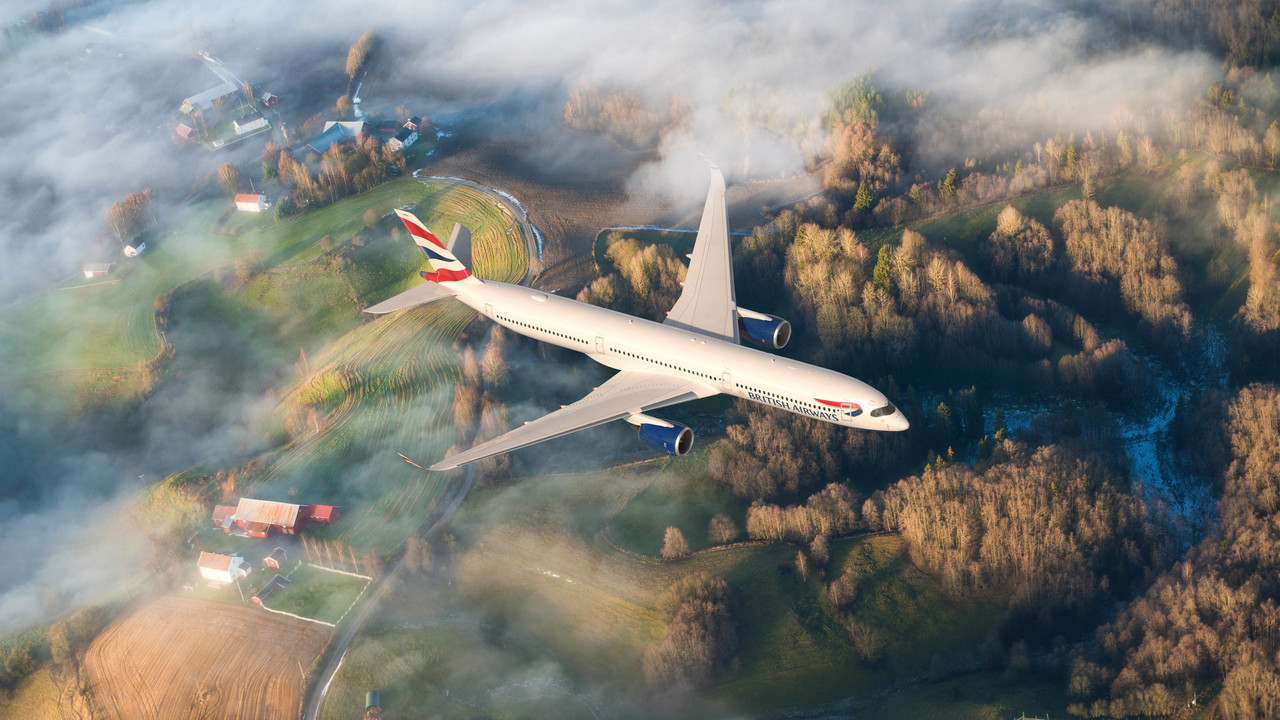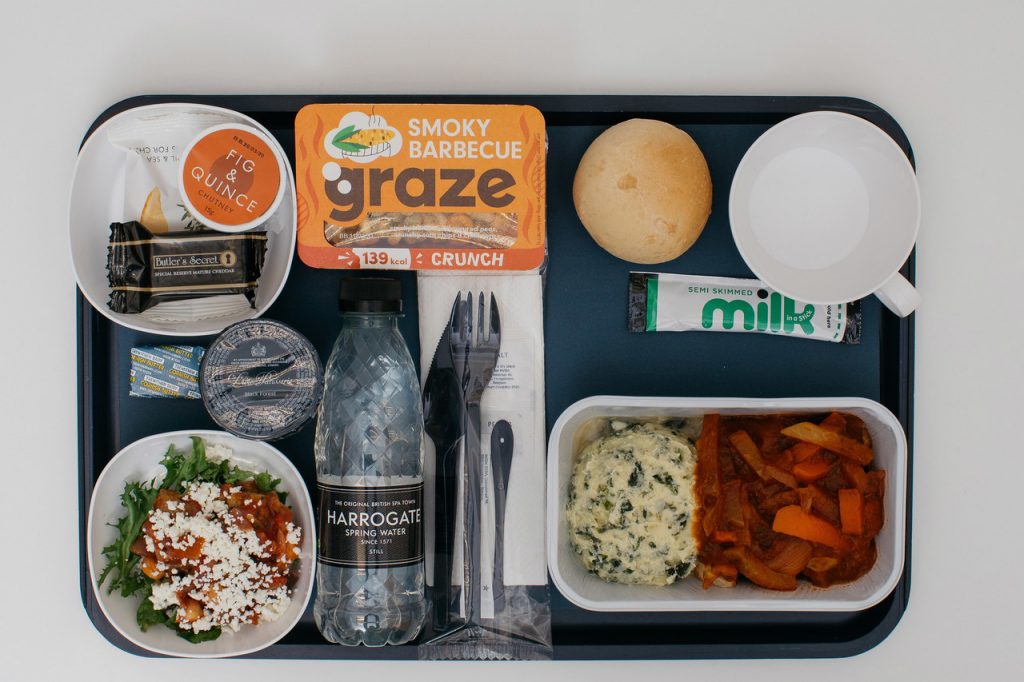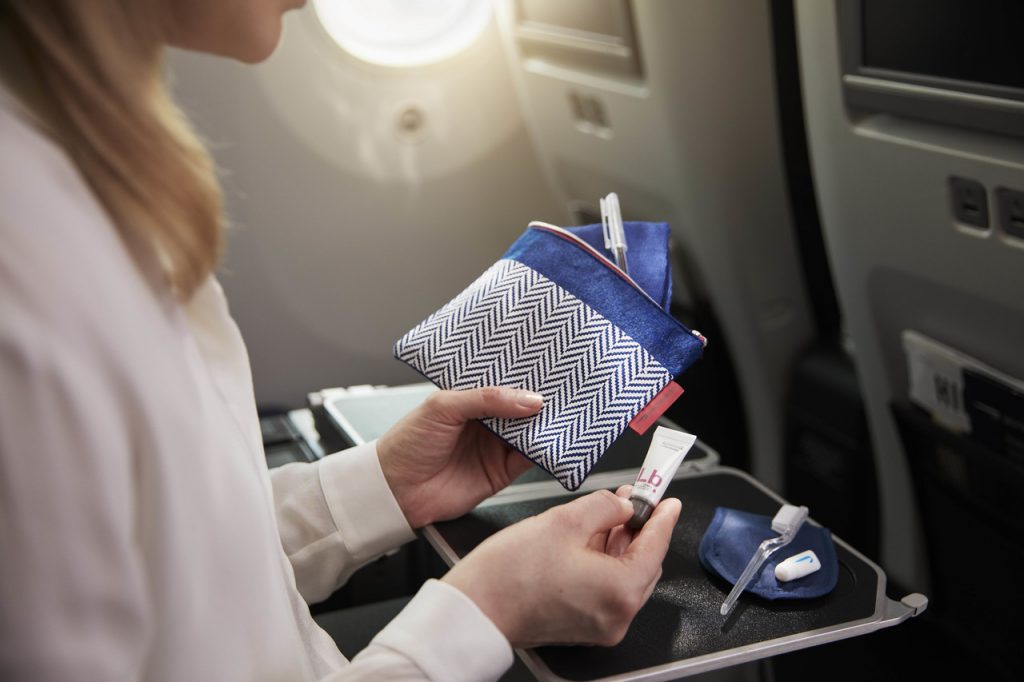
British Airways has already announced radical plans to become carbon neutral by 2050 and now the Heathrow-based airline is attempting to find ways to slash as much as 700 million tonnes of single-use plastic from its flights annually. But swapping out single-use plastics for more sustainable alternatives isn’t quite as easy as what it might at first seem… and it’s not just down to cost.
The airline has already had some success in reducing its reliance on single-use plastic – like other carriers, British Airways has swapped out plastic beverage stirrers for sustainable bamboo alternatives. That measure, along with several other minor changes, is already reducing the amount of plastic onboard by 90 tonnes a year.

Other easy pickings include removing plastic packaging from Business Class amenity kits, swapping out plastic wrapping on blankets for a paper alternative and packaging earphones in paper charity envelopes.
British Airways also says its onboard water bottles are made from 50 per cent recycled plastic (they looked at replacing them with glass bottles but that would significantly increase weight and in turn fuel burn), while plastic Duty Free bags have now been banned in a bid to cut plastic waste even further.
Other initiatives include:
- The First Class duvet is made out of recycled bottles
- Amenity kits in Premium Economy are made from recycled plastic
- Coffee bags come in plastic-free fully compostable packaging
But efforts to reduce single-use plastic by as much as 700 per cent more than present is causing the airline some significant headaches.
Replacing plastic cutlery with reusable metal alternatives would seem like a simple solution but the airline is investigating whether the cost of constant replacement, along with the amount of water and detergent used to clean metal cutlery would actually outweigh the benefits of ditching single-use plastic.
Bamboo cutlery is also being investigated but again, British Airways says it needs to come from a fully sustainable source before they give it the green light.
British Airways says it needs to make sure any changes it makes are “credibly sustainable”. It’s far too easy to launch a sustainable product for publicity but far harder to scale it to a level that will actually make a difference.

Other challenges include replacing plastic cups, toothpicks and even butter packaging – yet before they can be replaced the airline says it needs to find alternatives that offer the same hygiene levels as today and importantly don’t weigh any more.
“We’ve spent a long time researching how to make sustainable changes without causing environmental impact elsewhere,” explains Kate Tanner, BA’s customer experience manager.
“Some potential replacement options may be heavier, which would then have an impact on the weight of the aircraft and therefore on our emissions, so we must ensure we are making the right choices on all replacements,” she continued.
When it comes to recycling, British Airways now boasts that its sending less than 1 per cent of non-catering related waste to landfill. The amount of waste generated on short-haul flights has also dropped by 50 per cent, although long-haul flights have seen only a 5 per cent reduction so far.
Catering related waste is also a problem – strict biosecurity rules mean much has to be incinerated. Work currently in the pipeline may one day mean that incinerated waste is turned into sustainable aviation biofuel. BA’s parent company is pumping $400 million into the project and hopes to get the first plant up and running by 2024.
British Airways has set itself an ambitious target – watch this space to see what solutions it thinks up.
Mateusz Maszczynski honed his skills as an international flight attendant at the most prominent airline in the Middle East and has been flying ever since... most recently for a well known European airline. Matt is passionate about the aviation industry and has become an expert in passenger experience and human-centric stories. Always keeping an ear close to the ground, Matt's industry insights, analysis and news coverage is frequently relied upon by some of the biggest names in journalism.







